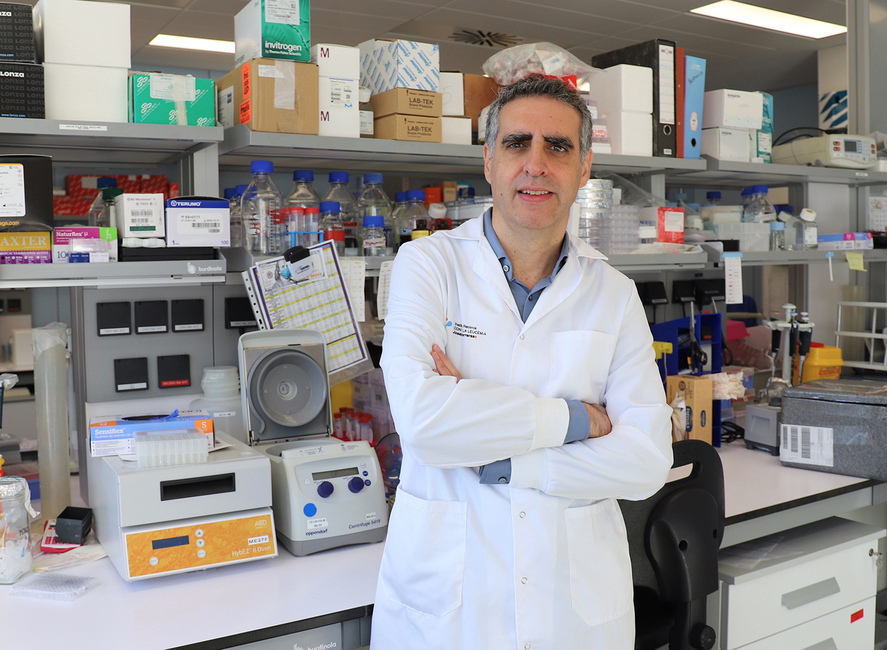Dr. Manel Esteller awarded the E-nnova Health 2021 Award in Big Data and Artificial Intelligence
Manel Esteller, Director of the Josep Carreras Leukaemia Research Institute, has received the E-nnova Health 2021 Award in Big Data and Artificial Intelligence awarded by Diario Médico and Correo Farmacéutico.

Manel Esteller, Director of the Josep Carreras Leukaemia Research Institute, ICREA Research Professor and Professor of Genetics at the Faculty of Medicine of the University of Barcelona, has received the E-nnova Health 2021 Award in Big Data and Artificial Intelligence.
The first edition of these awards, created by Diario Médico and Correo Farmacéutico, recognizes the work of professionals, institutions and companies whose digital initiatives have added value, contributed to the sustainability of the system and improved the patient’s life throughout 2021.
The idea of Dr. Manel Esteller's group, in co-direction with Dr. Aurora Pujol, is called EpiCOVID. It consists on the epigenomic and bioinformatic analysis of COVID-19 patients, which has allowed the discovery of a molecular signature that predicts the severity of the clinical outcome in those infected by the virus, especially effective in determining the risk of respiratory failure.
Dr. Manel Esteller graduated in Medicine and Surgery from the University of Barcelona where he received the PhD degree with a specialization in molecular genetics of endometrial carcinoma. He was a postdoctoral and associate researcher at Johns Hopkins University School of Medicine (Baltimore, USA), where he studied DNA methylation and its relationship to cancer. He led the Cancer Epigenetics Laboratory of the National Cancer Research Center (CNIO) in Madrid and returned to Catalonia in 2008 to direct the Epigenetics and Cancer Biology Program (PEBC) of the Bellvitge biomedical campus. Since 2019, he is the Director of the Josep Carreras Leukaemia Research Institute within the framework of the Research Centers of Catalonia (CERCA). Dr. Esteller's research has made it possible to understand the contribution of epigenetic alterations in human disease, especially cancer, and to develop biomarkers for its early diagnosis, as well as new treatments.